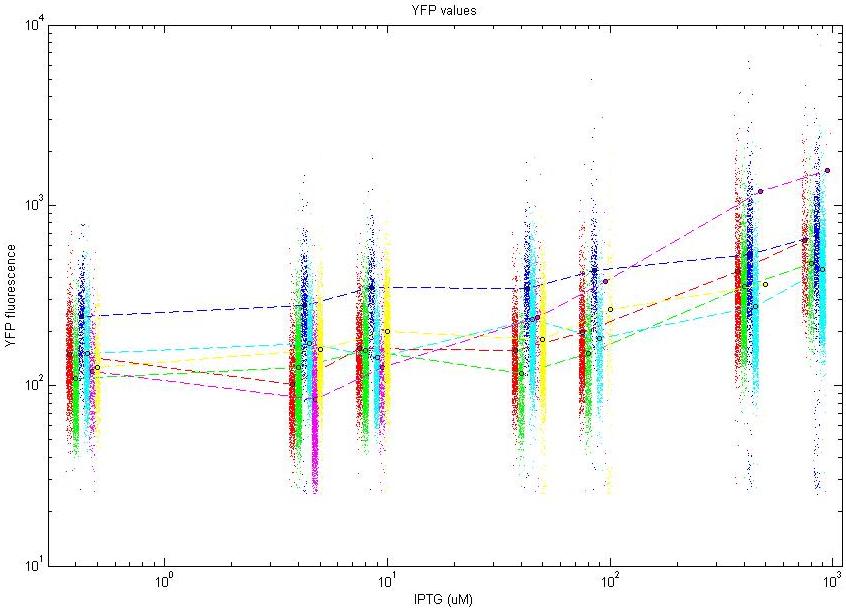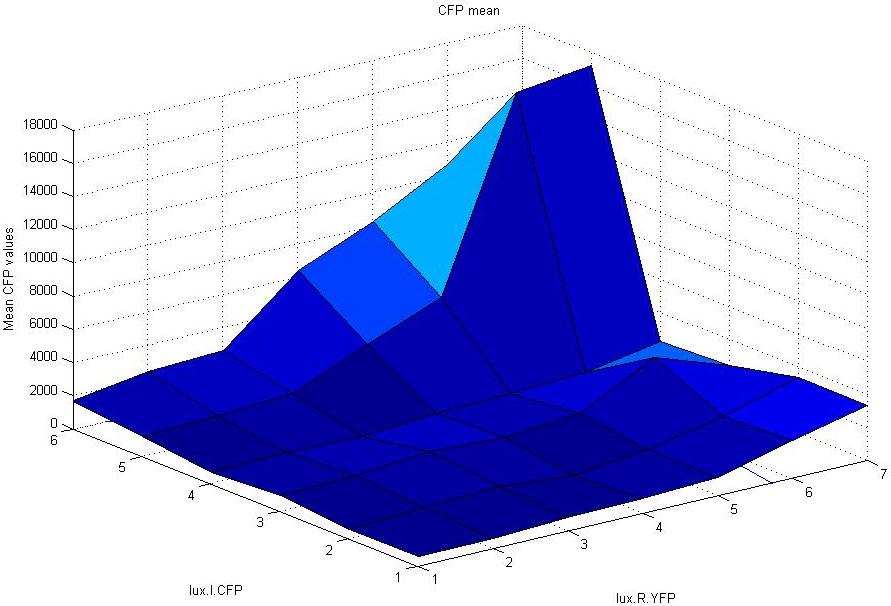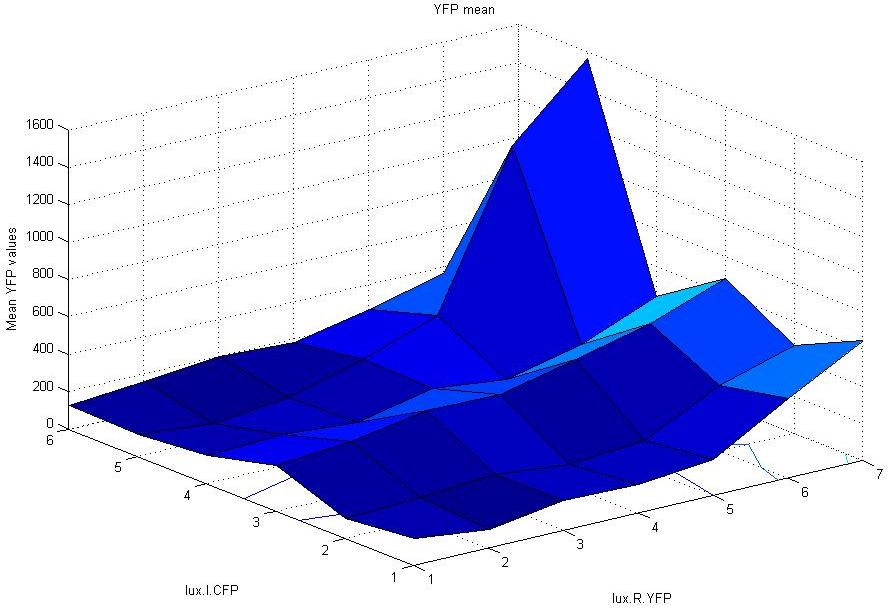July 6
From 2007.igem.org
(Difference between revisions)
(→Analysis) |
(→Analysis) |
||
| Line 20: | Line 20: | ||
IPTG (uM) or luxR.YFP | IPTG (uM) or luxR.YFP | ||
|-align="center" | |-align="center" | ||
| - | | 0 | + | |0 |
| - | | 5 | + | |5 |
| - | | 10 | + | |10 |
| - | | 50 | + | |50 |
| - | | 100 | + | |100 |
| - | | 500 | + | |500 |
|1000 | |1000 | ||
|-align="center" | |-align="center" | ||
Revision as of 06:43, 7 July 2007
Back to Bangalore
Back to e-Notebook
Experiments
Analysis
Today we compiled the data collected from all our open-loop experiments performed at various concentrations of aTc (ng/ml). The following matrix of information was obtained:
|
CFP mean values |
IPTG (uM) or luxR.YFP | |||||||
|---|---|---|---|---|---|---|---|---|
| 0 | 5 | 10 | 50 | 100 | 500 | 1000 | ||
|
aTc (ng/ml) or luxI.CFP | 0 | |||||||
| 1 | ||||||||
| 5 | ||||||||
| 10 | ||||||||
| 20 | ||||||||
| 50 | ||||||||
|
YFP mean values |
IPTG (uM) or luxR.YFP | |||||||
|---|---|---|---|---|---|---|---|---|
| 0 | 5 | 10 | 50 | 100 | 500 | 1000 | ||
|
aTc (ng/ml) or luxI.CFP | 0 | |||||||
| 1 | ||||||||
| 5 | ||||||||
| 10 | ||||||||
| 20 | ||||||||
| 50 | ||||||||
| These values, obtained from the microscopy experiments, give us a clear idea of the equivalence between luxI.CFP and luxI.YFP.
A scatter plot with each dot representing a cell was also plotted to see the variation of fluorescence with the change in aTc and IPTG concentrations.
|



